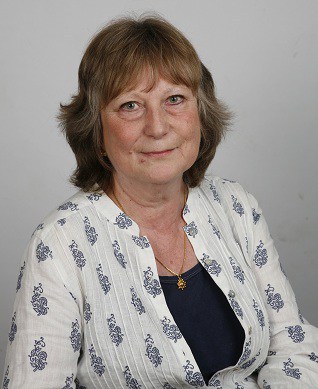Above: Dr Ros Morpeth OBE, Chief Executive of NEC
In our blog this week CEO Ros Morpeth gives us an update on non-exam assessment (NEA) and the successful campaign that has led to NEC’s nomination for the Times Educational Supplement Further Education Marketing & Communications Campaign of the Year Award. This blog follows our previous blogs about NEA, ‘Why NEC is campaigning for a public exam system that works for everyone‘ and ‘Barriers need breaking down for private exam candidates‘.
What was the issue?
People who are studying GCSEs and A levels through a distance learning provider achieve exactly the same qualifications as a student taking the exams at a mainstream school or college. They take their written papers alongside other students, sitting in the same exam halls, as private candidates. Subjects which have an element of non-exam assessment (NEA) — such as coursework for English or history, or practical assessment for the sciences — have always posed a particular problem because of the requirement to verify that the coursework is the student’s own work. When coursework was first brought into the curriculum, NEC worked closely with the exam boards to offer a secure system for authenticating the NEA for distance learners. This solution was based on a split entry arrangement whereby the NEA components were handled by NEC and the student took the written papers at a local exam centre.
In 2016 the Joint Council for Qualifications (JCQ), which is the overarching body for the awarding bodies, issued a regulation which stated that both the written papers and NEA components must be undertaken at a single centre. NEC spotted immediately that this would make it impossible for distance learning students to enter for qualifications with NEA because an exam centre would not be in a position to authenticate or mark coursework from a student they had not taught.
Why we took action
The courses affected included important and popular subjects such as A level English Literature, English Language, History, Biology, Chemistry, Physics, and GCSE English. This presented a major crisis for students studying these subjects and would be grossly unfair.
People often choose distance learning as this is the only route left for them to achieve the qualifications they need. Students come from all walks of life and could be serving in the forces, in prison, being home-educated or looking to change their career. Everyone deserves the opportunity to study what they want to without disadvantage and NEC has been at the forefront of making sure they can for more than 50 years.
How we did it
NEC initiated a campaign to raise awareness of the situation. In July, I wrote to Justine Greening MP, the newly appointed Secretary of State for Education, outlining the issues and proposing possible solutions. A copy of the letter went to the chief executives of the exam boards in England and Wales, Ofqual’s Chief Regulator and representatives of organisations that support widening access to education.
Daniel Zeichner, NEC’s MP, supported our campaign by asking questions in Parliament, challenging Ministers to have the new procedures reviewed. Coverage in the TES, the UK education magazine read by nearly half a million people each week, spelt out how the changes would put up yet another barrier for adults and young people who take GCSEs and A levels under their own steam. UCAS went public on the issue in the TES, stressing that private candidates play a key role in widening participation in higher education.
A positive outcome
We are delighted to report this has resulted in a solution: the JCQ and awarding bodies have helped us ensure that distance learners can study a course with NEA elements and enter for their exams through their distance learning provider.
Ofqual and the exam boards’ willingness to work with us, and the support of individuals and institutions who know that it’s quite simply unfair that anyone who wants to improve their qualifications should have barriers put in their way, are the reason for this positive outcome.
How it works for students
If you are planning to enrol on a course which has NEA you can be confident that NEC will ensure that your coursework or practical endorsement will be assessed along with your written exam papers.
NEC is an approved exam centre (this is the key part of the agreed solution) and as an NEC student, you’ll enter through us for your exams and NEA. A transfer of candidate application will then let you sit the written exams at a centre of your choice. This ensures your NEA will be assessed along with your written papers, and solves the issue of exam centres being unable to authenticate NEA for private candidates.
Don’t forget, the deadline for booking exams at one of NEC’s partnership exam centres is fast approaching. If you would like us to take the hard work out of booking your exams, get in touch before the 20th January deadline.
Dr Ros Morpeth OBE
Chief Executive of the National Extension College


Add a new comment
Current comments: 0